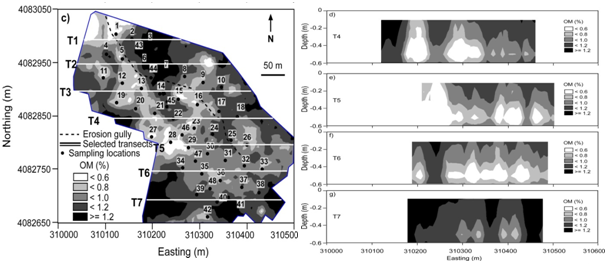
Dr John Triantafilis was awarded a Organisation for Economic Cooperation and Development (OECD) Cooperative Research Programme Fellowship to carry out research at the Instituto de Investigacion y Formacion Agraria y Pequaera (IFAPA) based in Alameda del Obispo, Cordoba Spain.
During his 4 month visit (March-Juy, 2016) he worked alongside Dr Karl Vanderlinden (IFAP) and Dr Gonzalo Martinez (Universidad de Corboba) on various research projects associated with various themes of the program and in the area of developing 2-d and 3-d electromagnetic conductivity imaging from the use of a single-frequency multiple-coil DUALEM-21 instrument.
With respect to the OECD’s “Managing Natural Capital for the Future” and sub-themes of “Soil” and “Water,” research was undertaken to map the spatio-temporal soil-water dynamics beneath a single dryland olive tree. The results of the time-lapse modelling show clearly how and where water enters the soil and how it is used by an olive tree and over an 18 month period.
With regard to the OECD’s “Transformational Technologies and Innovation” theme research was also undertaken to map soil organic matter content (SOM) across a degraded olive grove. Using such a Precision Agriculture approach, the maps provide baseline data from which follow up surveys can be undertaken to assess the success of management practices to increase SOM and thereby improve soil structural stability and hence minimise further gully erosion.
The research is ongoing, with the results of this research currently in review in various soil and water research journals. For further details about the (OECD) Cooperative Research Programme Fellowship, contact Dr Triantafilis (j.triantafilis@unsw.edu.au) or visit the website (http://www.oecd.org/tad/crp/crp-fellowship-guidelines.pdf).

